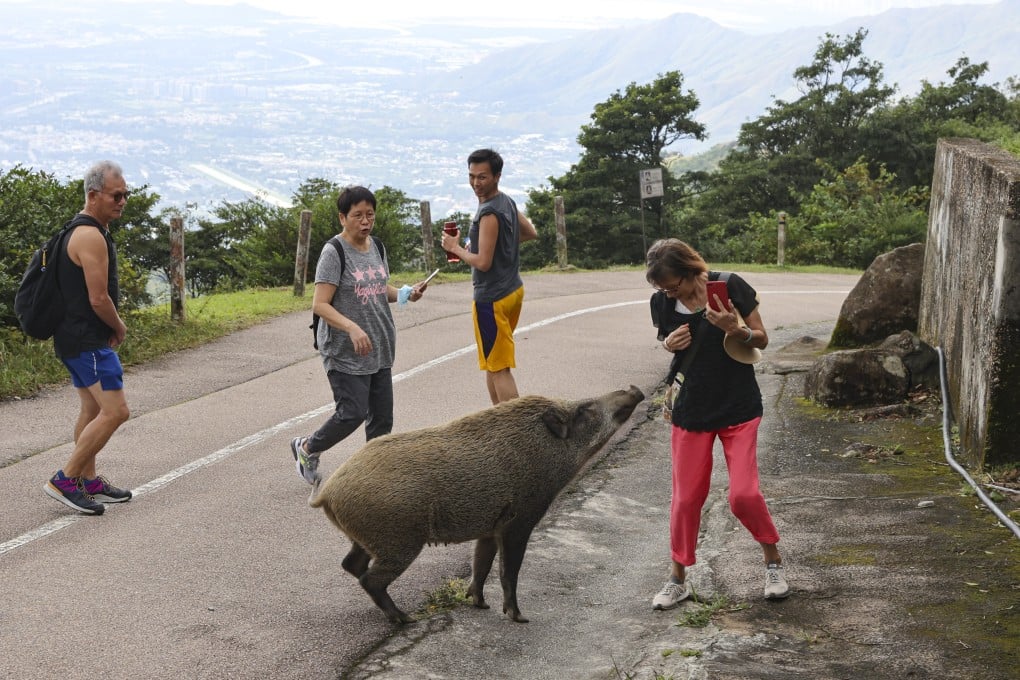Authorities propose Hong Kong-wide ban on feeding wild animals, with a HK$100,000 fine and 1 year in jail for offenders, in bid to tackle boar problem
- Lawmakers will discuss new measures to manage wild pigs in the city to safeguard public safety and maintain environmental hygiene next week
- Ban covering whole of Hong Kong is an amendment to Wild Animals Protection Ordinance, which prohibits feeding monkeys in areas such as country parks

The suggestion came ahead of a meeting of the Legislative Council environmental affairs panel on Monday, at which lawmakers will discuss new measures to manage wild pigs to better safeguard public safety and maintain hygiene.
The ban on feeding wild animals anywhere in Hong Kong would be an amendment to the current Wild Animals Protection Ordinance, which prohibits giving food to monkeys and other animals in designated areas, mostly country parks.

To strengthen deterrence, the government proposed increasing the maximum penalty for wild animal feeders from HK$10,000 to HK$100,000, and jail offenders for up to one year.
The government also recommended a HK$5,000 fixed penalty for illegal wild animal feeding, which it said was the highest among all the current fixed penalties related to contamination in public places.
In a paper submitted to Legco on Tuesday, the Agriculture, Fisheries and Conservation Department described residents feeding boars as the “main cause of wild pig nuisance” in recent years.
“In order to raise public awareness in this regard and increase the deterrent effect, we consider it necessary to amend the ordinance to strengthen the curbing of feeding activities,” the department said.